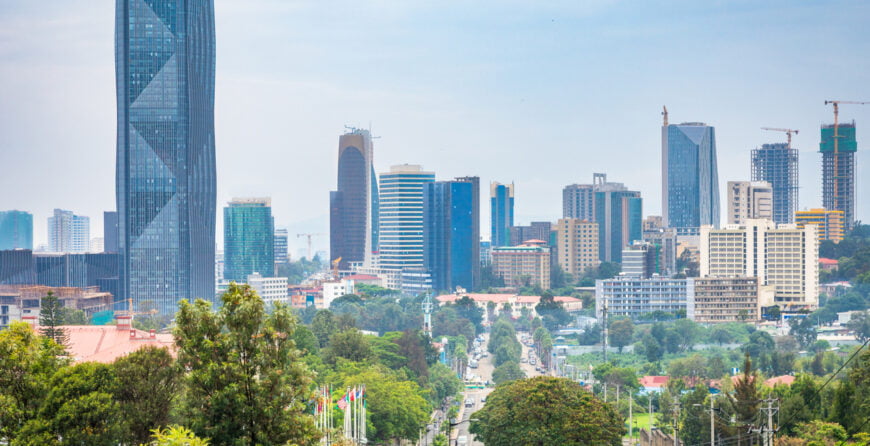In the post-COVID world, developing countries offer unique opportunities.
Due to the rapidly evolving global economy, these emerging regions are attracting increasing numbers of investors.
Local political dynamics greatly influence the investment climate in these countries.
The young demographics of these regions promise a dynamic and innovative workforce.
Education and training are key areas for enhancing the local labor force.
Artificial intelligence is revolutionizing industrial processes and creating new business opportunities.
Social networks play a crucial role in company communication and marketing.
The diaspora is a valuable source of skills and capital for development.
The rich and diverse cultures of these countries influence business practices and entrepreneurial creativity.
Armed conflicts around the world can impact the economic stability of regions.
Access to financial products is essential for fostering entrepreneurship and growth.
Global development programs strengthen local infrastructure and industries.
Abundant natural resources offer promising prospects for sustainable development.
The fight against climate change is a major challenge to ensure a sustainable future.
Empowering marginalized populations contributes to inclusive and equitable growth.
Economic empowerment of women is essential for a prosperous and egalitarian society.
Digitalization is transforming business models and opening new opportunities.
Public-private partnerships are essential for driving investment and innovation.
Knowledge transfer from North to South promotes sustainable development and cultural exchange.
Investment security is a key aspect in attracting international capital.
Key sectors to consider for investment are renewable energy, healthcare, and education.
In this context of economic opportunities, a new form of North-South migration is emerging.
International talents are drawn to the growth and innovation prospects in these regions.
Favorable immigration policies encourage the settlement of skilled professionals in Africa, Asia, and South America.
The cultural diversity resulting from this immigration enriches local societies and stimulates creativity.
The exchange of expertise between migrants and local populations strengthens economic and social capacities.
By promoting North-South migration, these regions provide a bridge between global talents and local opportunities.
Investing in developing countries raises some key questions:
What are the specific opportunities offered by sustainable exploitation of natural resources in African, Asian, or South American countries?
Sustainable exploitation of natural resources provides economic and environmental opportunities in the regions concerned. African, Asian, or South American countries often have rich natural resources such as minerals, forests, renewable energy, and fertile agriculture. Wise management of these resources can not only boost the local economy but also contribute to environmental preservation and long-term sustainable development.
What are the main factors that attract investors to emerging regions like Africa and Asia?
Investors are encouraged to take an interest in emerging regions like Africa and Asia due to several key factors, such as significant economic growth potential, vast emerging markets, large populations, increasing urbanization, abundant natural resources, skilled and cost-effective labor, as well as opportunities for innovation and strategic partnerships with local players. Furthermore, advancements in political stability, economic reforms, and openness to investment create a conducive business environment.
How do development programs support the growth of infrastructure in developing regions?
Development programs support the growth of infrastructure in developing regions by providing funding, technical expertise, and partnerships for the construction of roads, bridges, schools, hospitals, telecommunication networks, and other essential infrastructure. These initiatives aim to increase national capacities, improve the quality of life for local populations, facilitate access to basic services, enhance regional and international connectivity, promote a conducive environment for investments, and stimulate long-term economic growth.
How can North-South migration impact the economic development of countries?
North-South migration can significantly impact the economic development of countries in several ways. Firstly, by attracting international talents, it can promote the transfer of knowledge, skills, and technologies, thereby stimulating innovation and productivity. Additionally, migration can contribute to cultural diversity and creativity, enriching host societies and fostering an environment conducive to entrepreneurship and intercultural exchange. However, it is crucial that immigration policies are well-managed to ensure successful integration of migrants while upholding human rights and protecting local workers, thereby ensuring a positive impact on the economic and social development of host countries.
What are the challenges that investors face in emerging countries?
Investors in emerging countries face various challenges such as political stability, government regulations, corruption, inadequate infrastructure, and volatile exchange rates. Understanding these challenges is essential to mitigate risks and maximize investment opportunities.
How can North-South migration be a driver of economic development for developing countries?
North-South migration can be beneficial by bringing essential skills and fostering innovation and trade exchanges. Balanced and inclusive immigration policies are necessary to ensure mutual benefits between migrants and local populations.
What are the investment opportunities in Africa in the natural resources sector?
Africa offers numerous investment opportunities in the natural resources sector, despite challenges related to governance, security, commodity price volatility, and environmental and social concerns. With its vast reserves of minerals, oil, gas, and other natural resources, Africa is a region of interest for investors worldwide. Investors must carefully assess these factors before engaging in projects in Africa.
How do local cultures influence business practices in Asia?
Business practices in Asia are heavily influenced by local cultures, such as hierarchy, collectivism, respect for traditions and rituals, and the importance of personal relationships. Understanding these values facilitates communication and strengthens business partnerships in the region. Adapting to local standards is essential to establish sustainable partnerships in Asia.
Overall, these questions underscore the importance of understanding the challenges and opportunities of emerging investments, as well as the crucial role of development policies and programs in promoting sustainable and inclusive economic growth. Investors and policymakers must consider these aspects to maximize the positive impacts of investments and international cooperation in these rapidly changing regions.
Considering the aforementioned considerations, investing in developing countries comes with a shared quest for prosperity and sustainable development.
This dynamic ecosystem, combining investment, innovation, and new forms of immigration, paves the way for mutually beneficial growth.


